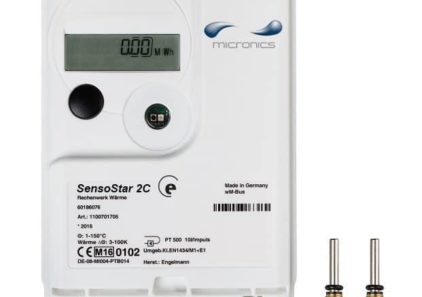Energy Calculators
Our Energy Calculators can be combined with our range of fixed clamp-on or traditional inline mechanical meters to provide an Energy Meter solution that tracks your energy usage.
Showing the single result
What is an Energy Calculator?
An energy usage calculator measures the total energy consumed by systems, appliances, or facilities. By collecting data such as voltage, current, and time, it calculates energy consumption in kilowatt-hours. These calculators are commonly used in building management, industrial operations, and commercial settings to track energy use. By providing detailed consumption data, they help businesses optimise energy efficiency, reduce costs, and improve overall system performance.
What is a Heat/Cooling Energy Calculator?
A heat/cooling energy calculator (such as the SensoStar 2C) measures the thermal energy transferred within heating and cooling systems. These devices are vital in HVAC, district heating, and industrial applications. By monitoring flow rate, temperature difference, and the specific heat capacity of the fluid, they accurately calculate how much thermal energy is being used or wasted. This precise data ensures efficient energy transfer, helps optimise performance, and supports energy cost reduction efforts.
Benefits of Energy Usage Calculators
- Accurate Measurement: Provides precise data on energy use, improving energy management.
- Cost Savings: Identifies inefficiencies, helping to reduce energy waste and cut costs.
- System Optimisation: Continuous monitoring allows for real-time adjustments, enhancing system performance.
- Improved Billing Accuracy: Ensures accurate billing based on actual energy consumption in district heating and cooling systems.
- Regulatory Compliance: Provides reliable data to meet energy efficiency regulations.
Use Cases
- HVAC Systems: In commercial or residential buildings, these calculators measure thermal energy used in heating and cooling, optimising system performance and reducing energy consumption.
- District Heating and Cooling: They track heat or cooling delivered to buildings from a central plant, ensuring accurate billing and efficient energy distribution.
- Industrial Applications: In manufacturing, they monitor energy transfer in heating and cooling processes, improving efficiency and reducing waste.
- Energy Audits: Used to assess the performance of heating and cooling systems, identifying inefficiencies and suggesting improvements.
